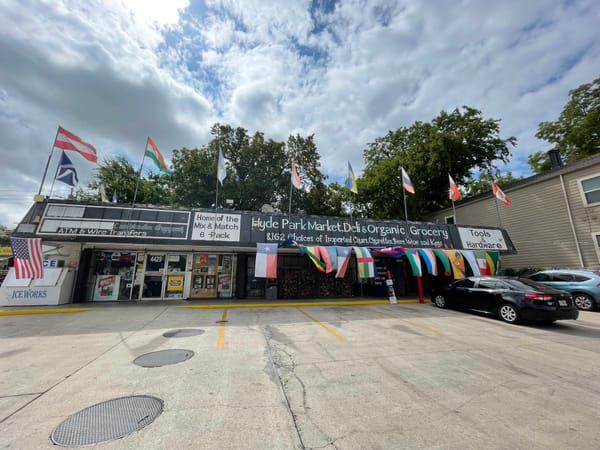Tragedy at APD & a dumb NIMBY court win

Tragedy at APD
A standoff over a hostage situation in South Austin left four dead on Saturday, including Senior Police Officer Jorge Pastore.
My heart is heavy today. Please help me and our APD family pay tribute to SPO Jorge Pastore for his brave & heroic actions. Sir, we’ll take it from here.
— Interim Chief of Police Robin Henderson (@Chief_Henderson) November 11, 2023
Thanks for all the prayers & thoughts. Continue to keep the Pastore family and our second Officer injured in your prayers. pic.twitter.com/237uLZixS4
According to the Statesman, nearly 100 gathered at City Hall last night at a vigil for Pastore. Speakers included CM Mackenzie Kelly, NAACP president Nelson Linder and U.S. Rep. Chip Roy, who is based in San Antonio but whose district includes parts of Austin.
Separately, APD Assistant Chief Jennifer Stephenson announced that Officer Kristy Astran died unexpectedly off-duty. Stephenson's tweet suggests that Astran died from suicide.
Please be your Brother’s and Sister’s Keeper. Check on them, provide help, resources, an understanding ear and let them know there is nothing that can’t be worked through or that’s worth taking your life for. 💙🥲 pic.twitter.com/5YjkgqY7UQ
— Jennifer Stephenson (@ChiefStephenson) November 12, 2023
This is the first time since 2012 that an APD officer has died in a line-of-duty shooting.
Police union overwhelmingly elects new president
The members of the Austin Police Association overwhelmingly voted for a change in leadership. Incumbent president Thomas Villarreal only received 22% of the vote, or about a third as many votes as the victor, Michael Bullock. The other challenger, Bino Cadenas, came in a distant third with only 11%.

Both challengers criticized the incumbent for not getting the union's message out, including in media. In a message to union members, Bullock, who takes office early next year, thanked Villarreal for his service and promised that 2024 will be the year where the the police "fight back."
"We're going to spread the truth and open the city's eyes to what's really going on," he said.
A pointless NIMBY victory
So, apparently Travis County District Judge Jessica Mangrum is going to side with the housing obstructionists and strike down three of the four housing programs they targeted in their most recent legal challenge.
The first piece of good news is that Mangrum is not striking down the most important program: Affordability Unlocked, which has been a major boost to low-income housing production.
Second, it will be extremely easy to reinstate the three programs that were struck down. All this means is that City Council will have to hold a couple more silly joint meetings with the Planning Commission. A waste of time and taxpayer dollars? You betcha. But a trifle in the grand scheme of things.
Indeed, the "compatibility on corridors" program that is being struck down was poised to get replaced anyway with a much more ambitious citywide compatibility reform.
The two other programs –– the VMU2 density bonus and the zoning reform that allows residential development in commercial zoning –– are hardly controversial. The latter one was championed by CM Alison Alter, for God's sake.
You gotta feel for the people who were conned into funding this lawsuit. Community Not Commodity, whose leader, Fred Lewis, no longer even lives in Texas, was tellings its supporters that it needed $40,000 for this court battle. Those who gave money presumably did so based on the belief that a victory in court would actually stop the density scourge from infecting their neighborhoods. Yeah...no. The only winners here are Lewis's ego and attorney Doug Becker's bank account.
Lewis called on Council to "begin to have real stakeholder deliberations to reach a consensus code." Actually, the laws that Lewis just worked to get struck down are the consensus –– supported unanimously or near-unanimously by the people's elected representatives.
A legal precedent that can't stand
The series of rulings prompted by Austin development battles in the past four years has established a ridiculous legal standard for notification that is going to force the state legislature to change the law.
I don't blame judges for their reading of the law, but it's also clear that these types of rulings were not contemplated when the law was written. Cities, including Austin, have made revisions to their land development codes without spending hundreds of thousands of dollars to mail notices to every homeowner.
Indeed, in the 80's a developer who was upset about a development restriction the city put in place in Central Austin sued, arguing that he hadn't received the required notice. His suit was rejected; the judge found that the wide scale change put in place by the city did not constitute zoning, and therefore was not subject to notification requirements.





